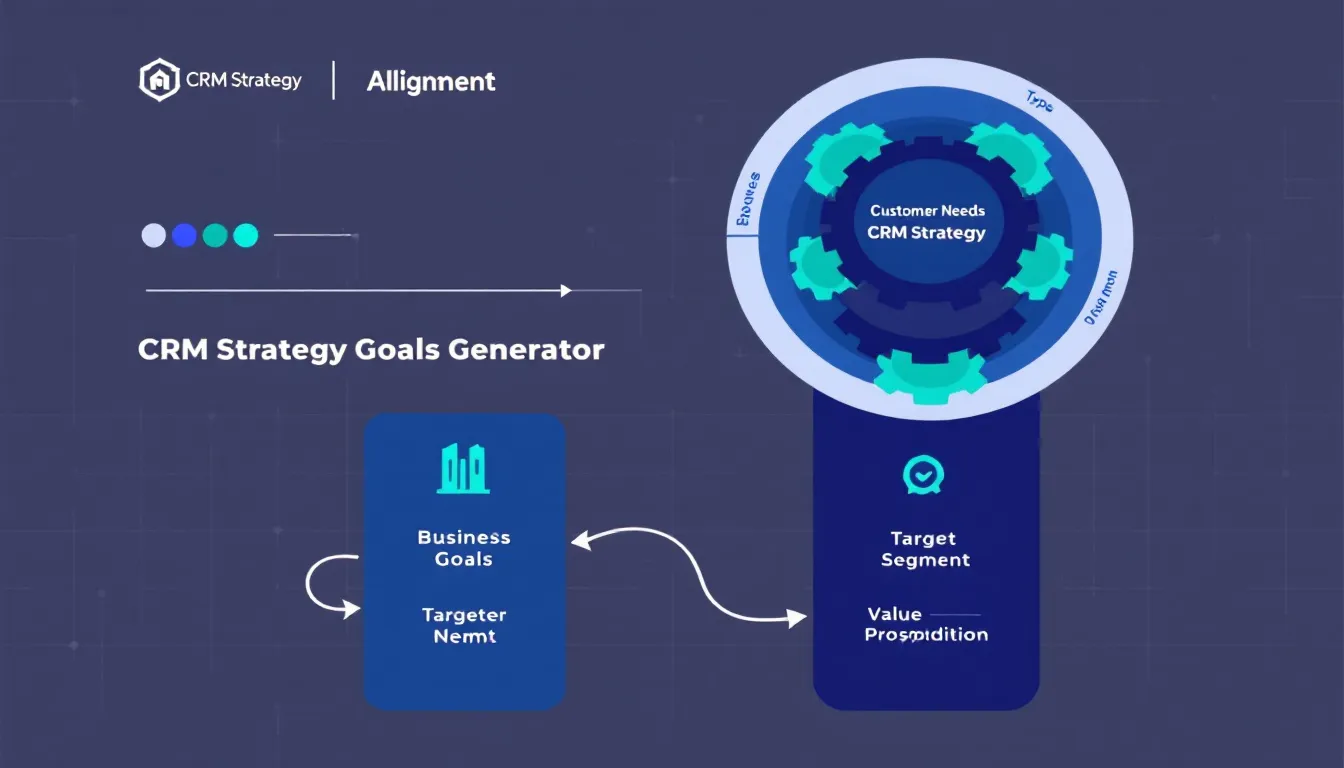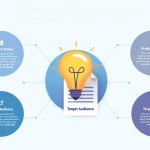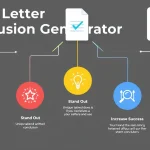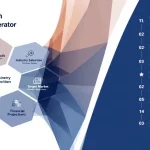Is this tool helpful?
How to Use the CRM Strategy Goals Generator Tool Effectively
1. Business Type or Industry
Specify your exact industry or business sector. Be clear and detailed to get tailored CRM goals.
- Example 1: “Independent bookstore focused on local authors and community events”
- Example 2: “Online marketplace for handmade artisan crafts”
2. Target Customer Segment or Audience
Describe your main customer demographics and characteristics clearly.
- Example 1: “Young parents seeking eco-friendly baby products”
- Example 2: “Freelancers and remote workers aged 25-40 looking for productivity tools”
3. Unique Value Proposition
Highlight your business’s distinct advantages that set you apart from competitors.
- Focus on benefits that your customers can clearly see or experience
- Include both tangible aspects (e.g., faster delivery) and intangible ones (e.g., unmatched customer support)
4. Primary, Secondary, and Tertiary CRM Goals
List your top customer relationship management objectives to guide your strategy:
- Primary Goal Example: “Boost repeat purchase rate among existing customers”
- Secondary Goal Example: “Enhance personalized email marketing campaigns”
- Tertiary Goal Example: “Reduce customer service response times”
Introduction to the CRM Strategy Goals Generator
The CRM Strategy Goals Generator is a practical tool designed to help you create clear and focused customer relationship management objectives that align with your business goals. By inputting your industry details, target audience, unique value proposition, and CRM priorities, you receive customized strategic goals crafted to improve your customer engagement, retention, and overall satisfaction.
This tool helps businesses of any size sharpen their CRM efforts by generating objectives that target specific customer needs and business contexts. It aligns your CRM goals with your broader company aims, enabling you to use resources efficiently while enhancing the overall customer experience.
Practical Usage of the CRM Strategy Goals Generator
Use this generator to develop focused CRM strategies customized to your industry and customer base. For example:
Retail Business Scenario
- Create CRM goals that increase loyalty program sign-ups by targeting frequent shoppers
- Implement personalized promotions based on customer purchase histories
- Develop streamlined communication channels across in-store and online touchpoints
Professional Services Scenario
- Establish automated follow-up sequences after client meetings
- Define metrics to monitor client satisfaction and engagement
- Create industry-specific content strategies to attract and retain clients
Key Benefits of Using the CRM Strategy Goals Generator Tool
Align Your CRM Goals with Business Objectives
- Generate CRM objectives that support your company’s broader mission
- Ensure customer service initiatives contribute directly to business growth
- Allocate resources effectively toward impactful CRM activities
Enhance Customer-Centric Strategy Development
- Design CRM goals based on your specific customer segments
- Improve customer experience by addressing real needs and pain points
- Increase retention by tailoring engagement strategies
Gain a Competitive Edge
- Leverage your unique value proposition to stand out in the market
- Identify opportunities to differentiate your customer approach
- Strengthen brand perception through targeted CRM efforts
Strategic Implementation Tips for CRM Goals
Short-Term Actions
- Focus on achievable goals that show immediate impact
- Set baseline metrics to measure success clearly
- Train your team on any new CRM processes or tools
Long-Term Planning
- Develop a timeline that phases CRM initiatives logically
- Establish feedback loops for ongoing improvement
- Build scalable systems that grow with your business needs
Frequently Asked Questions about CRM Strategy Goals
How often should I update my CRM strategy goals?
Review your CRM goals every quarter and conduct a thorough annual evaluation to keep your strategy current with market trends and customer expectations.
Can this tool suit both B2B and B2C companies?
Yes. The tool adapts to your business model by creating relevant CRM objectives based on your input, whether you serve other businesses or individual consumers.
How do I decide which CRM goals to prioritize?
Focus on goals with the highest potential to boost customer satisfaction and align tightly with your resources and overall business strategy.
Should startups use this tool differently from established businesses?
Startups benefit by concentrating on customer acquisition and relationship-building, while mature businesses typically emphasize retention and loyalty-enhancing strategies.
How can I measure the success of my CRM goals?
Use key performance indicators such as customer retention rates, satisfaction scores, lifetime value, and engagement levels tied to your specific objectives.
Can I generate CRM strategies for multiple business units?
Yes. Complete the tool separately for each unit or product line to get customized goal sets tailored to each segment’s needs.
Best Practices for Implementing Your CRM Strategy Goals
Set Clear and Measurable Objectives
- Create SMART goals—Specific, Measurable, Achievable, Relevant, and Time-bound
- Align goals with your team’s capacity and resources
- Establish deadlines and checkpoints for progress evaluation
Ensure Team Alignment and Ownership
- Share CRM goals with all stakeholders clearly
- Define responsibilities to avoid overlaps and gaps
- Schedule regular updates and reviews to keep everyone on track
Monitor Performance and Adapt
- Implement simple tracking tools for your CRM objectives
- Gather feedback continuously from customers and staff
- Adjust your strategy based on results and insights over time
Important Disclaimer
The calculations, results, and content provided by our tools are not guaranteed to be accurate, complete, or reliable. Users are responsible for verifying and interpreting the results. Our content and tools may contain errors, biases, or inconsistencies. Do not enter personal data, sensitive information, or personally identifiable information in our web forms or tools. Such data entry violates our terms of service and may result in unauthorized disclosure to third parties. We reserve the right to save inputs and outputs from our tools for the purposes of error debugging, bias identification, and performance improvement. External companies providing AI models used in our tools may also save and process data in accordance with their own policies. By using our tools, you consent to this data collection and processing. We reserve the right to limit the usage of our tools based on current usability factors.







